
What have your public servant peers said? Some things aren’t surprising. Public servants are hard-working — perhaps too hard-working — mission-driven, keen learners. They’re also frustrated by inefficiency and endless meetings — and they live in their inboxes.
But there are a handful of surprises too. Here’s a quick peek into the minds, dreams, and to-do lists of your community.
1. Empathy is your most important skill
When asked what is the most important characteristic of a public servant? 51.1% of respondents said empathy, almost 30% more than the second most popular option, patience. A similar finding cropped up in response to our asking what is the number one quality of a stellar manager in the public sector?, for which empathy and integrity shared the top spot with 23.9%; well ahead of resilience, which only received 8%.
An emphasis on empathy also appeared in several other answers. For example, the most popular response to what policy area do you find most exciting? was Equality and Social Purpose (31%), and when asked what communication skill would you most like to develop?, 34.9% of public servants opted for Difficult Conversations — a full 15% more than the second-best option, writing.
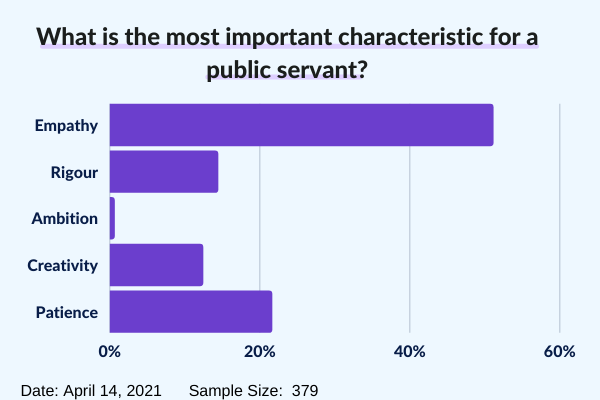
2. But ambition matters too
Public servants care, of course, but they’re not simply dreamy-eyed idealists. They know that important work needs to get done, and they need to work hard if they want to carve a career path of their own. We asked what’s one thing you wished you had learned sooner? and the most popular response (26.2%) was career strategy. Following this was influencing people (19.9%).
When asked what you’d most like to learn from your peers; the two strongest responses were how to strategise your career (35.8%) and the top 10 challenges of working in government (35.4%). It takes a dose of grit and realism to deliver on the impact that attracted you to public service in the first place.
3. 2021 has been a tough year
You didn’t need a poll to tell you that. In July, 33.9% of people said that this year had been especially tough. Almost 70% of respondents said that they particularly miss teas and coffees with colleagues and a decent separation between work and home life. 48.8% of you are working longer — often a lot longer — hours, and, back in January, 80% of you said that your department was either busier than usual, or off-the-charts hectic. We all need time off.
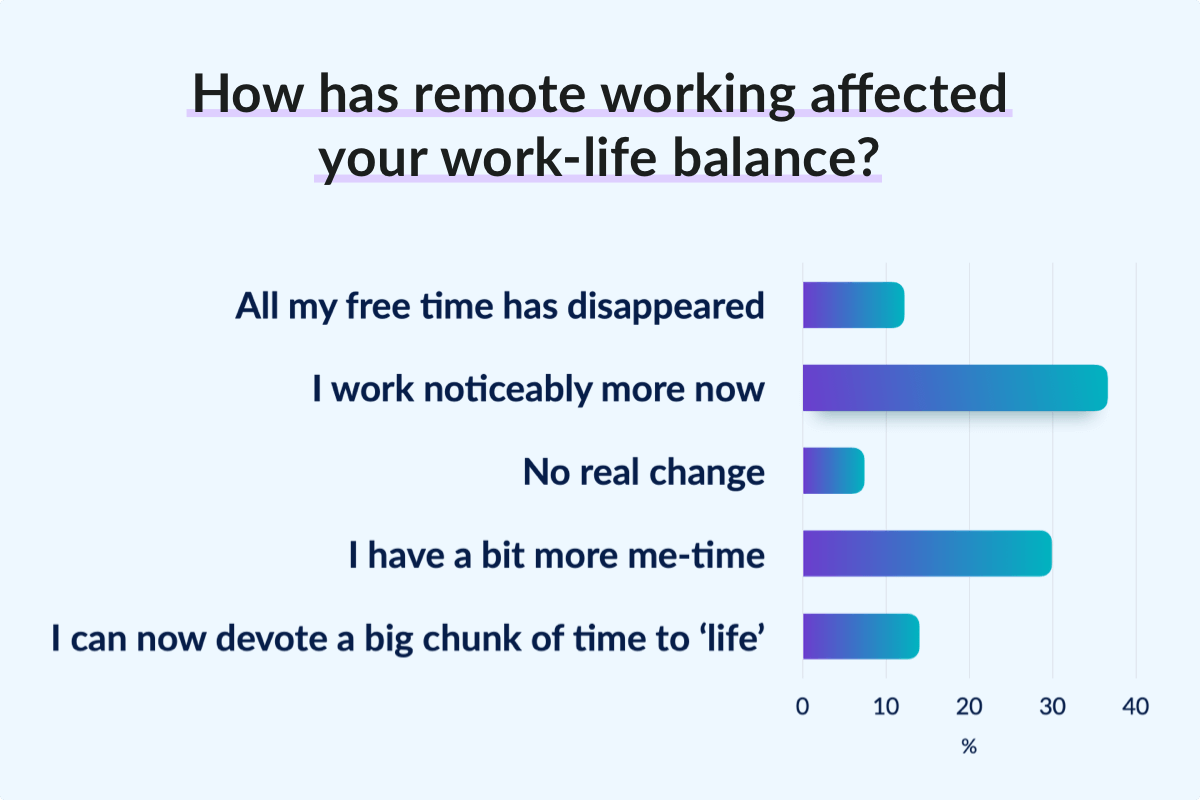
4. COVID-19 is still having a big impact on workloads, but it has put public service into the spotlight
The reason it has been a tough year is, in most cases, the pandemic. Sadly, that’s yet to go away. Almost 10% of you work full time on COVID-19 related issues, and more than 40% are still giving a lot of bandwidth to the virus. It’s probably the reason we’re working longer and having a tough time.
While challenging, the devoted work that public servants do to support their communities seems to be inspiring the general public. 60.1% of respondents say that the pandemic sparked new interest in joining the public service.
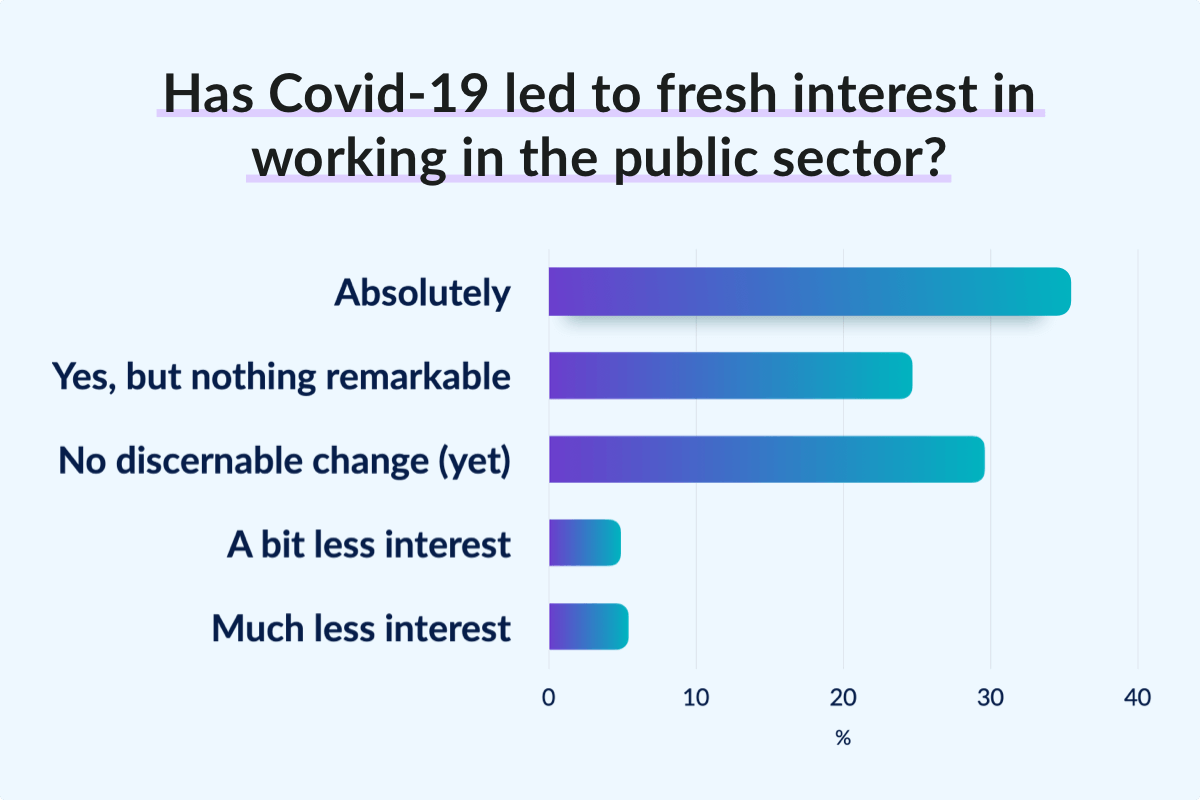
5. Government organisations (usually) look after their own…
In tough times, it helps to know that your organisation has your back. 76.4% of you responded positively to the question Does your organisation support the mental health of its employees? A further 67.7% of people claimed that their department was performing averagely or better in supporting diversity and inclusion.
So happy were some people with their roles, that when we asked what their ideal public service job would be, several people wrote in to say that they already had it.
6. But working in government is still hard
Working in government can sometimes feel like forcing water to flow uphill. Here’s a quick summary of some common frustrations:
- 82.3% of you said that your organisation was either at or behind the curve on digital transformation.
- 79.4% noted moderate-to-extreme challenges with advocating change in their organisation.
- If granted one wish, 33.3% would ask to hire more people, and 32.5% would ask that their team got better training.
- Inefficiency (25%), meeting overload (19.4%) and politics (18.1%) received the dubious honours of being the biggest struggle in a public servant’s job.
- With respect to institutional knowledge, 30.7% said their department wasn’t good at holding onto it, and a further 13.8% went as far as to say that they are regularly re-inventing the wheel.
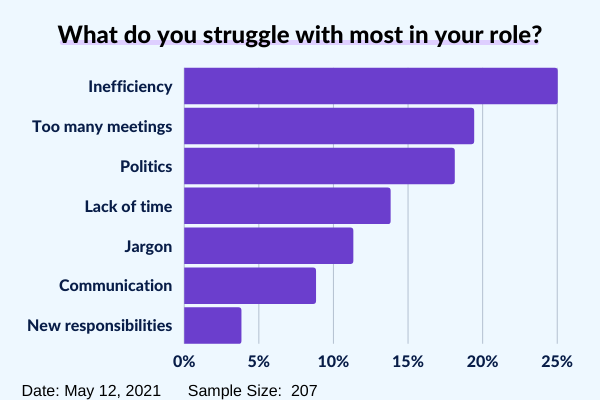
7. Public servants are dedicated learners…
They’re especially interested in prioritising learning technical know-how (27.4%), productivity skills (20.4%) and taking on new responsibilities (25.2%).
10.3% devote a whopping hour or more per day to learning, with 91.9% of people saying they devote at least a few hours per month to active learning.
8. … but they still have a sense of humour
We once asked what area of government people would be most interested in moving to (climate was the most popular). However, somebody submitted a written response asking for a very specific government job:
“I want to follow around ministers with a big spatula, slapping them on the head every time they lie or say something silly”.
If anyone has seen an opening for this role, please let us know.
9. Public servants live in their inboxes
Work emails, especially ones from people wanting things from you, are the opposite of fun. In a recent poll we found out that public service inboxes are heaving with messages. Special sympathy ought to be reserved for the 2% of Apolitical members who received over 200 emails each day.

10. Above all, public servants are motivated by doing good (the wealth and fame are incidental)
Being a public servant is a decent, solid career. But then, so is accounting. The reason that public servants work the jobs they do is, above all else, impact.
Impact is what makes all the frustrations and challenges worthwhile.
Public servants want to help their fellow citizens at a local and global level, and that’s what makes them so important.
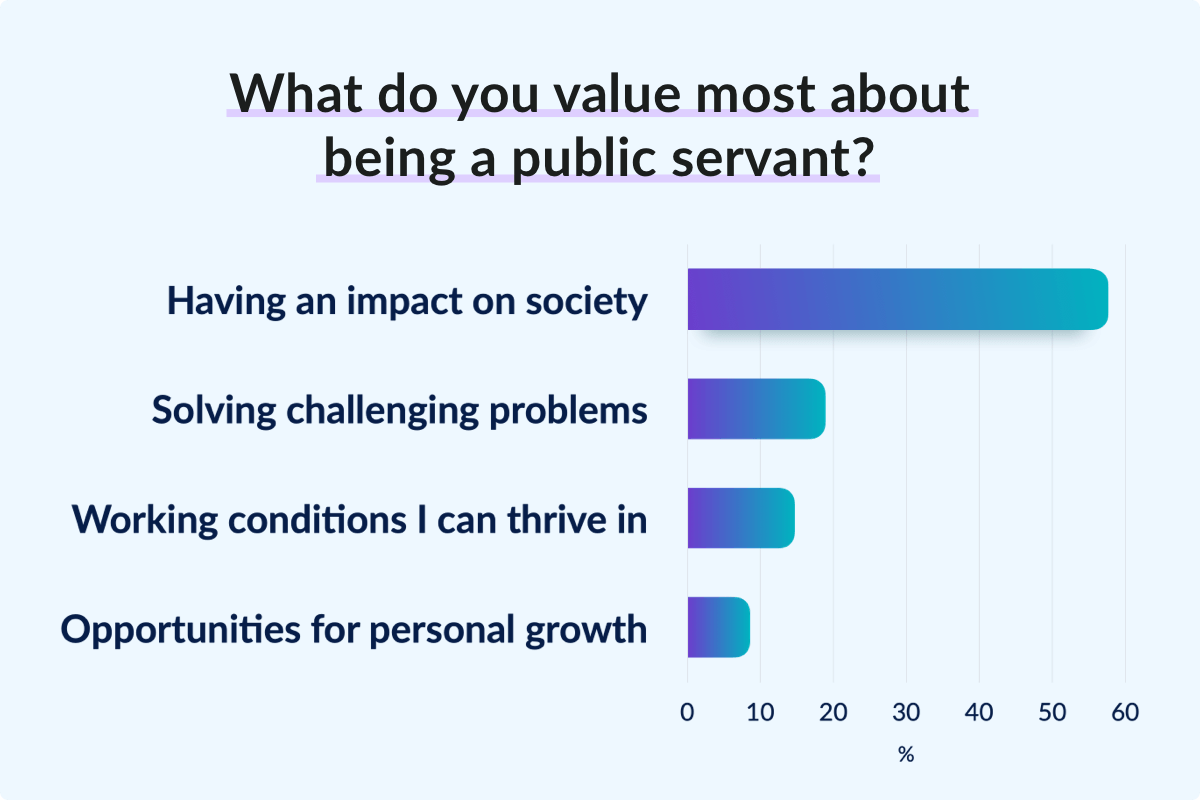
This article is curated from Apolitical.
READ MORE:
Public servants should take a wellbeing-led approach to COVID-19 recovery, leaders say


Any feedback or news tips? Here’s where to contact the relevant team.